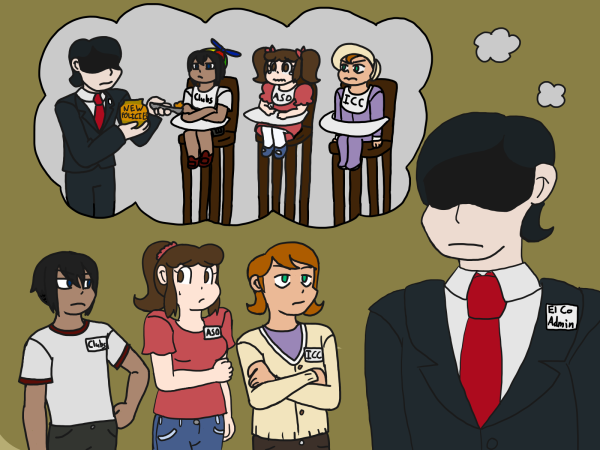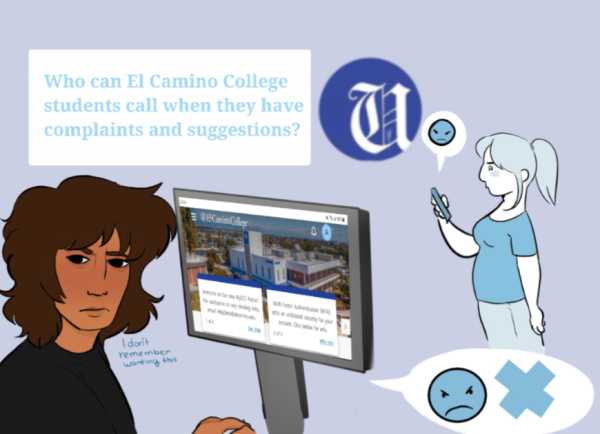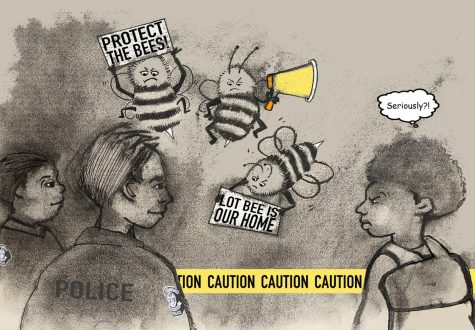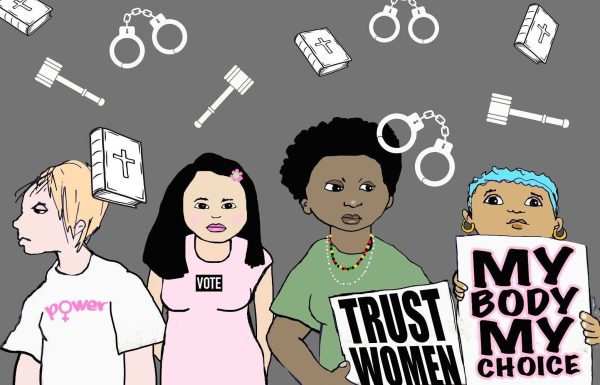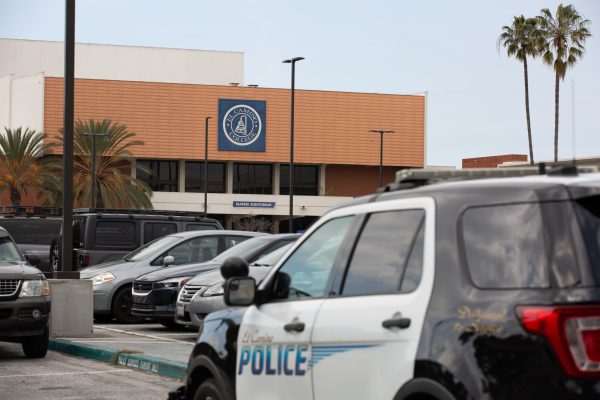Can junk food be banned? NO
Banning fatty foods from public schools is not going to make the health situation in this country any better; there is going to be an uproar from the general populous because one of its rights is being taken away.
Ask yourself if you are willing to let the state decide what you put into your mouth; it makes one feel violated to have state officials deciding what vending machines on our campus sell and what our cafeterias offer.
Eating habits are formed at a young age when parents decide what a young child can eat and what that child cannot eat.
Taking away high sugar snacks and junk food from elementary and middle schools, where students still do not know what is good for their growing bodies, should not be advised.
Instead, foods which are a greater source of nutrition should be introduced into the school menus.
There are times when everyone feels like they need to have something sweet or salty, and a between-class run to the vending machines is the perfect time to buy that quick snack between classes and meals.
Taking away high sugar junk foods and soda is not going to solve the problem of obesity in our nation.
Teachers, parents and state officials should concentrate on how to make children, the future of this country, aware of the life changing health problems which can be caused by eating foods high in sugar.
When in grade school, children are usually taught by teachers and parents about healthy foods.
Children are advised on what a growing child should eat and drink instead of the tempting cheese chips or soda, which have no nutritional value in the way that healthy foods do.
We were coaxed so often, by our teachers at school and by our parents, to eat healthfully that it became a habit.
Once you teach kids what is good for them and what is not, leave it up to them to decide instead of simply taking away high sugar food items, since this could cause them to rebel against what they are being taught.
According to the San Francisco Chronicle, a recent survey by the vending machine industry showed that vending machine sales provide $750 million in extra money for school districts nationwide.
The vending machines not only provide snacks to kids, but they also help provide extra pocket change to schools.
If vending machines are taken away, it will make it hard for school districts to survive. They already don’t have money that is needed to give students the education necessary for a healthy and a successful life.
By stopping a steady flow of income to schools by discontinuing vending machines, the schools that generate a decent slab of income through these vending machines will eventually show signs of a lack of money.
Some of these signs could appear as a lack of funding in scholastic sports, poor facilities, or a cut in services, since the school would have to pay directly for these programs through money generated by tuition.
This could cause a loop of negative effects because fewer people will want to go to a school with poor facilities and high enrollment fees, so the fees would have to drop in order to maintain basic school functions, such as salaries, and would provide students with the minimal college experience to save money.
If the state decides to take away vending machines from schools, there will be no effective way to provide the extra money that schools already need to provide kids with a great education.
The state government should only concentrate on how to improve the state’s economy, and leave it to teachers and parents to decide how they are going to help students make better decisions about what foods they should eat and what foods they should avoid.
Citizens of California already have given Gov. Arnold Schwarzenegger the power to lead and heal the state from all the debt it is in.
We don’t want the state or the governor to tell us what we should eat and what we should not eat; we are quite capable of making these decisions on our own.


